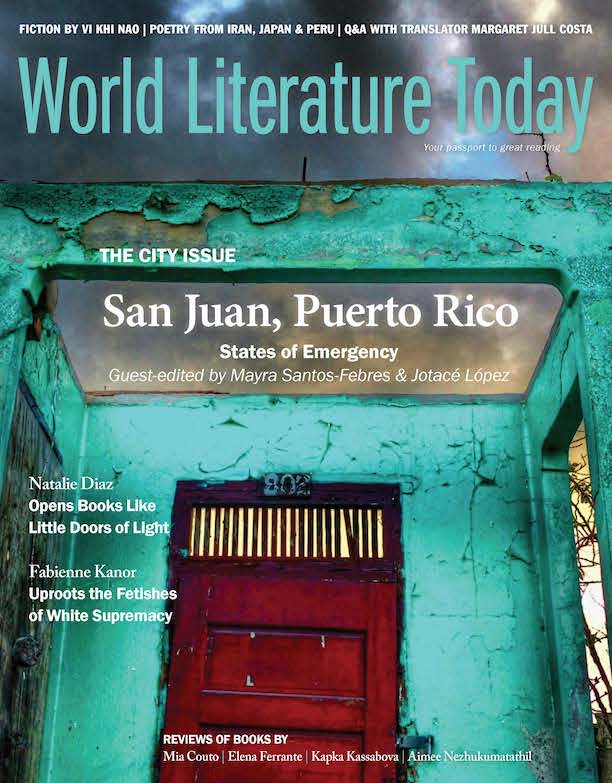Translating Toshiko Hirata’s Ars Poetica

IN REAL LIFE, TOSHIKO HIRATA (b. 1955) is a uniquely kind, warm, and outgoing person, famous for her sense of humor as one of Japan’s best-known living authors. However, in her award-winning collection Is It Poetry? Hirata’s choice of poetic speaker is a recluse: someone who struggles with the very idea of writing poetry and for whom the noises of contemporary society are frequently too much to bear.
The book’s title itself is an intentional pun. The Japanese title, Shinanoka, literally means “Poems on the Seventh Day” as well as “Is It Poetry?” According to Hirata, before the project began, she had been considering giving up on poetry altogether. The utter indifference of her editor drove her to take on this audacious project: writing a roughly fifty-line poem on the seventh day of the month, each month, for two years. By asking the question herself, Is It Poetry? Hirata turned the entire project into an ars poetica. The twenty-four poems in the book were serialized monthly from 2002 to 2004 in the Japanese literary journal Notebook of Contemporary Poetry.
A poet, playwright, and prolific novelist, Hirata is a skilled dramatist who puts her beleaguered poetic speaker into seemingly impossible situations. Is It Poetry? begins with her female speaker assuming a male frame of mind while riding the Tokyo subway and ends with her jumping out a bus window with a pet goldfish she’s named Journey. The reader can take in the entire book as a literary journey: a two-year sojourn through poetry.
In the poem “Is It October?” (literally “October 7th” in Japanese), her speaker finds herself going far out of her way, in the middle of the night, to visit an empty condo listed for sale:
I’m not buying; I’m going
for that windowless basement.
These lines encapsulate the bleakness of her speaker’s outlook, as though the world’s noise is too much to bear. However, later in the same poem, Hirata allows her speaker some pleasure (as well as some autonomy) when she chooses to reject an umbrella: “A woman has the right to get wet walking in the rain.” In giving us permission to translate the book, Ms. Hirata granted us wide latitude to assure the poems were both touching and humorous in English, which often required significant departure from the Japanese.
In “Is It October?” the basement itself was problematic: we ran out of words to describe it in English (sub-basement? sub-sub-basement?), and it led to a conversation about whether Hirata was deploying a metaphor for death. In the end, however, we decided her speaker is merely reclusive, not supernatural.
Finally, although the gender of the previous owner of the condo is unspecified in the Japanese poem, we chose to make her female, to best align with the alienated feelings of the speaker.
Editorial note: Read “Is It October?” from the same issue.









